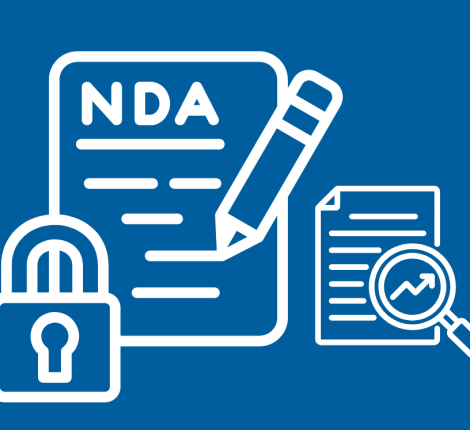Corporate Law Newsletter: FCPA AND ANTI-BRIBERY CLAUSES IN M&A TRANSACTIONS – March 2023
Background
The Foreign Corrupt Practices Act of 1977 (“FCPA”) has gained momentum in its application over the last few decades. Governments and regulators across the globe have taken active steps against international crimes pursuant to having identified several cases of corruption, money laundering and bribery involving corporates. FCPA makes it unlawful for certain classes of persons and entities to make payments to foreign government officials. The FCPA addresses the issue of international corruption in a bifold manner: (i) the anti-bribery provisions – prohibiting individuals and businesses from bribing foreign officials; and (ii) the accounting provisions – imposing record keeping and internal control requirements on issuers and prohibiting individuals and companies from falsifying books and records.
Applicability and Significance of FCPA and Anti-Bribery Provisions in M&A Transactions
FCPA and anti-bribery aspects are important from a cross-border M&A perspective because of their extra-territorial applicability. FCPA’s applicability is not limited to acts of corruption and bribery involving US companies and citizens. It goes beyond to encompass foreign companies and individuals who directly or indirectly cause an act in support of a corrupt payment to occur on U.S. territory.
The FCPA’s anti-bribery provisions broadly apply to three categories of persons and entities:
- entities whose securities are listed on a national stock exchange in the US (including foreign entities with American depository receipts listed on a US exchange) and their officers, directors, employees, agents and shareholders;
- natural persons who are residents/nationals/citizens of the US and all non-natural persons established under US laws or any of its states, territories, possessions or commonwealths or that have their main place of business in the US (including their directors, employees, agents and stockholders); and
- certain persons and entities, other than issuers and domestic concerns, acting while in the territory of the United States.
The Securities and Exchange Commission (“SEC”) has clarified that FCPA may apply to foreign jurisdictions even in instances where there is no U.S. territorial connection and extends to publicly traded companies (issuers) and their officers, directors, employees, agents, and stockholders.
However, it must be noted that the FCPA does not impose liability on a foreign national who is not an agent, employee, officer, director or shareholder of an American issuer or domestic concern unless that person commits a crime within the territory of the United States, as it was expressed in United States v. Hoskins.
With the increase in cross-border investments by private equity funds, venture capitalists and multinational corporations, FCPA and anti-bribery aspects have become quintessential – especially, for investments in developing and underdeveloped markets which are prone to corruption and bureaucracy-related issues. Therefore, the usage of FCPA and anti-bribery provisions in M&A transactions has become ubiquitous. Typically, these aspects are covered as representations and warranties given by the company and the promoters to investors/acquirers in the transaction documents, backed by indemnities.
Predominantly, the concern ties onto successor liability which an acquirer/investor may inherit from an acquired entity’s pre-acquisition conduct that is unlawful from an anti-corruption and anti-bribery standpoint. For instance, in the year 2017, a civil penalty of USD 13 million was imposed by the SEC upon Mondelez International Inc., a Virginia based corporation, emanating from the pre-acquisition conduct of its step-down subsidiary Cadbury India Limited (“Cadbury India”). Cadbury India had onboarded an agent for obtaining license approvals for a chocolate factory in India. As per the SEC, Cadbury India failed to conduct due diligence and appropriate monitoring regarding the funds paid to the agent for procuring licenses/approvals, thereby fostering risks of unlawful usage of funds. It was observed that Cadbury India’s books and records did not accurately and fairly reflect the services rendered by the agent, in violation of the internal control provisions of the FCPA.
Concerns around Contractual Protections against Anti-Corruption and Anti-Bribery
Although contemporary M&A transaction documents are drafted to include protections to some extent against FCPA and anti-bribery risks, these are often inadequate due to the presence of customary limitations on indemnity such as temporal limits and knowledge qualifiers. Indemnity protections are heavily dependent upon the financial ability of the indemnifying parties. Furthermore, these protections are incapable of remedying any loss of goodwill / reputational harm or any sanctions of criminal nature. Any person seeking to enforce indemnity protections against the same is reasonably likely to find themselves having to prove that such losses are direct in nature, as indemnities are usually restricted to direct losses.
Conclusion
Considering the above, it becomes essential for acquirers/investors to conduct full-fledged due diligence prior to the consummation of transactions. While due diligence investigations may not be capable of identifying each and every non-compliance/risk, it is crucial for the determination of potential risk exposure, remedial steps, and framework for precautionary checks and balances. Acquirers/investors would find themselves in a better position to make an informed decision regarding the viability of a deal in view of any identified anti-corruption/anti-bribery issues. In situations where it does not merit pulling the plug on the deal, acquirers/investors can focus on the implementation of the creation of robust internal control mechanisms and awareness within the organization as a step towards a compliant ecosystem.





